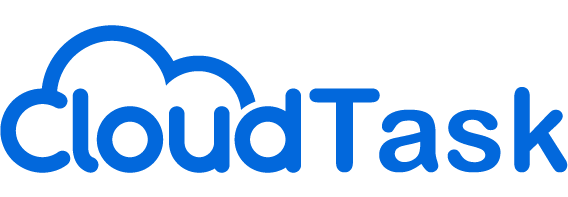Closing deals in a competitive market is a huge challenge for any business.
After an average of 18 calls, a sales rep can connect with a buyer.
Some suggest that it may happen due to the competitive market we witness today. To some extent, it is true. But what we fail to recognize is how today’s customer is:
- Aware of existing alternatives in the market
- Known for seeking precise and apt information
- Trying to avoid technical jargon when learning more about the products
That means having a sales team with the right product knowledge can help your business tackle lead queries during the sales process and even convert them into customers.
All you need is the right way to impart this product knowledge to sales team. Considering this business pain point, we’ll dive into a quick guide that helps you understand the relevance of product knowledge in sales process and a few tips to improve its distribution.
But first, let’s quickly understand what product knowledge in sales means.
What is Product Knowledge in Sales?
Product knowledge in sales implies the understanding a sales rep must have about a product, its features, upgrades, use cases, competitors, and let’s not forget the benefits.
Understand that strong product knowledge enables sales reps to build trust with buyers, communicate product value better, answer queries on the spot, and even close deals faster.
For example, during a demo call, there are many questions that a customer can ask that may confuse the rep. These questions can be around the USP of the product or even about its basic functionality. But if the rep has good product knowledge, they can tackle any question and assure the customer that they are making the right choice if they opt for its subscription.
Importance of product knowledge in sales success
Now that we understand product knowledge in sales, let’s briefly explore some of the top reasons why it can benefit your sales team.
1. Respond better to customer objections
Buyers can constantly question and even object the use of a product during sales call if they are not introduced to the right set of features that tackle their existing challenges in the business process.
This normally stems from the fact that sales reps fail to understand buyers on call.
Don’t worry, it is not an assumption, but how 59% of buyers feel on call with a sales rep who doesn’t take the time to understand them.
But with strong product knowledge, a sales rep can ensure that various buyer challenges are understood. Once they understand the challenges, they can help the buyer learn how the product can help them overcome business pain points and how upcoming upgrades will resolve future challenges too. In a nutshell, the rep can better respond to customer queries and objections hassle-free.
2. Builds trust with customers
This leads us to the next point: building trust with customers.
That’s right. When customers feel satisfied on a call about how the sales rep handled their questions and doubts, they feel an instant sense of relief and that they are in the right hands. This encourages them to trust the brand and sign up for the product.
3. Helps identify additional products or services for customers
Good product knowledge also helps a sales rep to identify what other products can they bundle with the existing product and how they entire suite can help buyers tackle their business challenges.
Let’s say a university is looking for a learning management software. During the call, a sales rep understood that the university was searching for an LMS that would help them create learning modules and enable students to test their knowledge.
However, their LMS currently creates only modules and not quiz sections. Considering this, the sales rep bundles their quiz maker software so that the university can integrate it with LMS solution. This way they address both the problem statements and even upsell other company products.
This can only happen when sales reps know about the ins and outs of the product, and how it can configure with other existing products. So, even if the customer came looking for one solution, they get to know the others and have the option if they’d like to create suite instead.
4. Quickly identify and resolve problems
Good product knowledge can also help a sales rep identify existing and upcoming challenges in a business and offer the product as a solution. This can only happen if the reps are aware of various use cases and how certain features, when compared to competitors, help buyers tackle different challenges.
Tips to improve product knowledge of your sales team
With a good understanding of how strong product knowledge in sales is beneficial for your business, let’s take a look at our five tried-and-tested tips that help you improve the same.
1. Conduct training programs for sales teams
Did you know that continuous training gives 50% higher net sales per employee?
That means if you keep training your sales team about the product’s features, use cases, benefits, and upcoming upgrades, they can tackle buyer queries efficiently and close deals faster.
To accomplish this, you can:
- Conduct quarterly training sessions: These training sessions can include feedback where managers explain what went right and wrong during calls, and how they can be improved moving forward.
- Initiate role-play sessions: The reps can partner with other members where one acts like a customer and the other as a rep. During these sessions, managers can monitor how each pair is performing at addressing buyer’s existing challenges and offer their feedback on how this call can be made better.
- Invest in annual training sessions with agencies: Agencies specializing in sales can act as guest speakers and help the in-house team understand how their existing ‘call’ challenges can be tackled.
But if you have an external team working for you, make sure to engage with them and train them based on the feedback collected at the end of every call.
2. Make the sales resources readily accessible in a knowledge base
Yes, strong product knowledge can help reps respond to concerns without hesitation, reducing delays in decision-making. But not all reps can recollect the right information about product features and use cases during a call.
To tackle such situations, you must create an AI-powered knowledge base for your sales team.
This knowledge base can become a readily accessible resource that helps the sales reps understand the following:
- Product features and various ways in which one feature can tackle multiple buyer challenges.
- Common scenarios that buyers normally approach the business with and how they were handled by other sales team members.
- Ready to access videos on product use cases so that they can share with buyers during onboarding call.
However, to add all these sales assets, your knowledge base must-have:
- AI functionality: Tools like Document360 offer generative AI functionality called Eddy that makes search more intuitive, summarizes articles in 3-4 sentences, generates FAQs, and recommends articles.
- Intuitive analytics dashboard: Your knowledge base should also help you understand how the sales team is using the repository. You can assess this by monitoring the terms they’ve searched in the knowledge base, which articles are frequently searched and read to understand their success rate, and which queries led to no results (failed queries) to learn what kind of articles your team should create next.
- Editorial features: Your knowledge base should also offer strong editorial features, such as a WYSIWYG Editor, markdown support, auto save, file attachments, and more. This will streamline article creation in the repository.
3. Keep the team aware of product updates
To ensure your in-house or out-house sales team is aware of product updates, you can:
- Send emails that inform them about the product updates and lead them to the following knowledge repository article that explains it further.
- Conducted training sessions for major product upgrades and helped them understand how they work.
4. Offer Hands-on experience with the product
You can also encourage your sales team to use the product personally to manage their daily tasks or meet their sales goals.
Other than that, you can:
- Simulate customer scenarios through role-playing exercises where reps troubleshoot common customer concerns using the product.
- Offer access to demo accounts where sales teams uses trial versions to explore functionalities firsthand.
- Encourage shadowing the customer interactions where sales reps get to observe product implementations or support calls to see real-world usage.
5. Encourage Customer Interaction
Finally, to improve product knowledge among sales reps, you must encourage them to:
- Listen to customer feedback and understand how can they create a seamless experience for buyers going forward.
- Analyze existing concerns from the customers to improve responses and identify knowledge gaps.
- Engage with buyers or customers via webinars or live events to understand their common challenges with existing solutions and help them learn how your product tackles them.
Build & Improve Your Product Knowledge Base for Sales Today!
Strong product knowledge is crucial for a sales team to answer questions like “How does your product solve my problem?” and close deals faster.
Understand that a well-informed sales team can handle objections smoothly, build trust, and tailor solutions to customer needs. This not only leads to higher conversions but also increases satisfaction levels.
All you have to do is implement regular training sessions, increase possibilities of hands-on experience, and engage with prospective buyers frequently to strengthen product knowledge among sales team members.
We hope this helps you improve and enhance your sales team’s product knowledge and close more deals.
Looking to empower your sales team with better tools and services?
Explore expert-vetted solutions and talent on our CloudTask Marketplace and give your team the edge they need to close more deals, faster!







